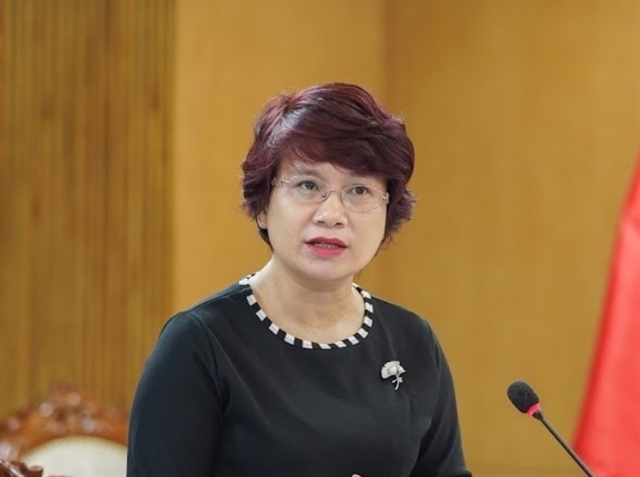.jfif) Opinion
Opinion


|
| Nguyễn Thu Thủy, Acting Director of the Higher Education Department under the Ministry of Education and Training. — Photo laodong.vn |
Nguyễn Thu Thủy, Acting Director of the Higher Education Department under the Ministry of Education and Training, talks to Giáo dục Việt Nam (Việt Nam Education) online newspaper on what universities should do to be considered self-autonomy accredited.
What’s the role of the University Council in Vietnamese universities?
The majority of the universities have highly appreciated the role played by the University Council in the course of reforming their organisation systems and management in order to raise the quality and effectiveness of the operation in accordance to the Resolution No 19 of the Communist Party's Central Committee.
The University Council’s most important mission is to carry out its management role, to develop its development strategy in order to raise the university’s prestige inside and outside Việt Nam.
Law No 34 [the Law on amendments to the Law on Higher Education] was promulgated by the National Assembly in 2018 and stated clearly the most important function of the University Council is to make the best use of all available resources to improve the quality of tertiary education and facilitate conditions for poor students and disadvantaged students to attend universities.
What’s the relationship between a self-autonomy university and the Ministry of Education and Training?
For universities running courses to train human resources for non-State economic entities, they will operate on the principle of self-autonomy, in which the University Council has to develop their own development strategy and policy. They will also develop their own plans on how to generate budget to run their universities. This mechanism is in line with the Resolution No 19 of the Party Central Committee.
Do you think it is now time for all Vietnamese universities to adapt the self-autonomy practice?
I can’t agree more. For any university that has met all conditions to become self-autonomy as regulated in the Law No 34/2018/QH14, we should ask them to apply the principle of self –autonomy. Yet, they have to develop a detail plan on how to do it.
However, for universities that do not have conditions to switch to the self-autonomy practice right now, we should encourage them to work out their own plans to do so in the future.
In my opinion, at present many universities do not have the capacity or are not ready to switch. So, we should not force them to do so when they are not ready yet.
So what conditions should universities have if they want to switch to the self-autonomy practice?
Self-autonomy has become a trend in many foreign universities nowadays. However, in my own opinion, any Vietnamese university wanting to make the switch must meet the following six criteria:




